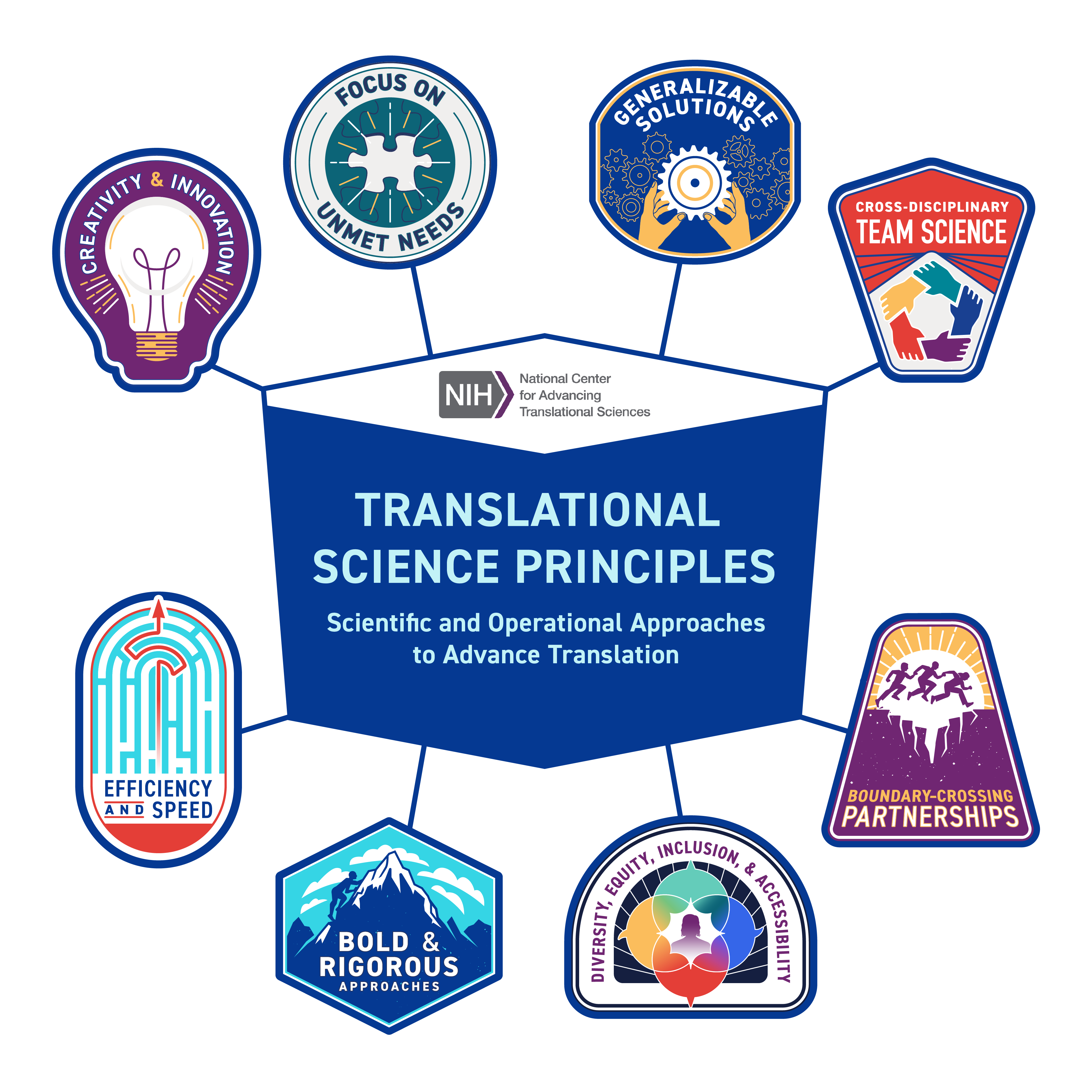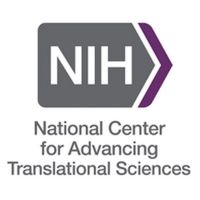Loretta Fearrington is a Research Informatics Specialist with the NC TraCS Informatics and Data Science (IDSci) service, which supports investigator studies with innovative technology and advanced analytics. She oversees the Electronic Health Record (EHR) Data Service, supervising the analysts who query the Carolina Data Warehouse for Health (CDW-H) and use other tools to provide data to researchers.
TraCS offers pilot funding in field of translational science
The North Carolina Translational and Clinical Sciences (NC TraCS) Institute has offered a variety of pilot funding opportunities since 2008, awarding over 1,100 pilot grants totaling over $27M. TraCS-supported pilot studies have resulted in over 520 external "follow-on" grants, totaling over $435M in research funding at the University of North Carolina at Chapel Hill and our partner institutions.
Clinical and Translational Science (CTS) Pilot Program

TraCS is funded by the National Center for the Advancement of Translational Science (NCATS) through the Clinical and Translational Science Awards (CTSA) Program. Over time, NCATS has shifted the priorities of the CTSA Program to advance the field of Translational Science more explicitly. As a result of that shift, our pilot program released a new funding opportunity: the Clinical and Translational Science (CTS) award.
The CTS pilot award supports investigation focused on understanding the scientific and operational principles underlying each step of the translational process, so that advances can be applied to research on any target or disease.
It's important to note that this opportunity is still a pilot program. Projects are intended to explore possible innovative new leads or new directions for established investigators; to stimulate investigators from other subject areas to lend their expertise in research in Clinical and Translational Science; to provide initial support to establish a proof of concept; or to generate preliminary data to support subsequent applications for external funding.
Focus on Translational Science

NCATS defines Translational Science as "the field of investigation focused on understanding the scientific and operational principles underlying each step of the translational process."
Whereas translational research focuses on the specific case of a target or disease, translational science is focused on the general case that applies to any target or disease.
A key tenet of translational science is to understand common causes of inefficiency and failure in translational research projects (e.g., incorrect predictions of the toxicity or efficacy of new drugs, lack of data interoperability, ineffective clinical trial recruitment).
Translational Science identifies barriers to the advancement of research across the translational spectrum, works toward a product or approach that overcomes or mitigates that barrier, and is generalizable across multiple diseases/conditions.
Funded projects from cycles 1 and 2
For the first 2 cycles of our CTS Pilot Program, we funded 5 pilot projects. These projects are concrete examples of fundable Clinical and Translational Science pilot projects. Click on each project title to learn more:
PIs: Malia Blue (Exercise & Sports Science, UNC College of Arts & Sciences) Shelby Baez (Exercise & Sports Science, UNC College of Arts & Sciences)
Barrier: (1) Very low adherence to wearable monitors for Physical Activity (PA) / Sleep studies, (2) Participant access to data through apps can bias results
Translation Science approach: Evaluate compact, user-friendly and researcher-manageable physical activity (PA) /sleep tracker (Oura Ring) and compare with "gold standard" ActiGraph
Advantage: Enables collection of non-biased PA/HRV/sleep data while reducing need for participants to travel to central lab setting. Applicable to a variety of PA- based studies and interventions
PIs: Aysenil Belger (Psychiatry, UNC School of Medicine) & Alper Bozkurt (Elec & Comp Eng, NC State)
CTS Goal:
- Development of a digital health platform that integrates real-time dynamic measures of physiological and psychological well-being and stress exposure with cloud-based data processing and pattern generation.
- Platform will use EMA to assess fluctuations and enable delivery of targeted clinical and behavioral interventions in real time.
- Provides a more accurate and nuanced understanding of an individual's mental health experiences compared to traditional retrospective assessments, which rely on individuals recalling their experiences from memory.
Aims:
- Develop the wearable low-powered sensor to monitor stress markers, including movement of the body and activity levels, electrodermal activity, heart rate and heart rate variability in real time.
- Validate the operation of new sensor against a gold-standard ECG and EDA recording system in the lab with diverse cohort (n = 24) ages 18-21.
PI: Elizabeth Corteselli (Div Allergy & Immunol, Dept Peds, UNC SOM)
CTS Barrier:
- Lack of preclinical models for pulmonary therapeutics. Animal models do not fully recapitulate human disease and are impeded by species differences, while in vitro cell models typically rely on submerged monocultures and/or transformed cell lines.
- Drug candidates that show good efficacy in vitro can fail in clinical trials due to systemic off-target effects and poor patient tolerance.
- Aerosolized drug delivery can prevent this issue, as inhalation avoids systemic distribution and metabolism and is instead delivered directly to the site of disease, enabling much lower dosing and avoidance of adverse side effects.
- However, testing of compounds for aerosolized delivery is difficult using current preclinical models and requires an organotypic system with an air-cell interface.
Aims:
- Validate an Air-Liquid Interface (ALI) co-culture model of primary patient-matched lung fibroblasts and epithelial cells.
- Use the Idiopathic Pulmonary Fibrosis drug pirfenidone to determine the efficacy of aerosolized treatments on the ALI co-culture model.
PI: José Gaston Guillem (Div GI Surg, UNC SOM)
CTS Barrier:
- The Latino population bears a disproportionate burden of cancer morbidity and mortality relative to other racial and ethnic groups. However, Latino individuals are underrepresented in cancer clinical trials, which limits the generalizability of study results and healthcare advancements, particularly in this community.
- A fundamental barrier to trial recruitment is low health education, specifically regarding cancers affecting the community, such as colorectal cancer (CRC), a commonly diagnosed cancer in the US Latino population.
- Study will examine the utility and feasibility of a church-based outreach effort in identifying and recruiting Latino individuals to participate in a cancer-specific educational intervention and the assessment of Latino-perceived barriers and willingness to participate in CCTs.
Aims:
- Design an educational outreach project that builds upon the unique relationship that exists between the Latino community and the Hispanic Ministry at St. Thomas More Catholic Church and addresses the large burden that CRC poses on the Latino community.
- Develop an educational video in Spanish that improves Latino health education on CRC, screening, and willingness to participate in clinical trials.
- Translate into Spanish and pilot test three health knowledge questionnaires as a preliminary step to examining whether willingness to participate in trials is mediated by levels of cancer-specific health knowledge.
PI: Laura Milko (Genetics, UNC SOM)
CTS Barrier:
- NIH-funded Age-based Genomic Screening (ABGS) study established a Community Research Board (CRB).
- With funding from a TraCS $2K Stakeholder Engagement Pilot award, the NIH-funded Age-based Genomic Screening (ABGS) study (ABGS) and Community Research Board (CRB) co-developed a set of six Genetics and Genomics Educational Modules comprising fundamental concepts from genomic medicine described in plain language that are intended to be engaging and clear to individuals with a 6th to 8th grade health literacy level.
Aims:
- Present content from different modules at six community engagement events and evaluate the impact of different genetic research information content and delivery methods on expressed interest in participating in genomic medicine research.
- Test whether community members prefer to learn about genomic medicine research from genetic researchers or community members.
Cycle 3 now accepting applications
We are currently seeking proposals for Cycle 3 that focus on understanding a scientific or operational principle underlying a step of the translational research process with the goal of developing generalizable principles to accelerate translation.
Submissions due: November 14, 2023.
Learn more about this opportunity at tracs.unc.edu/services/pilot-program/cts
Questions regarding applicant eligibility may be directed by email to This email address is being protected from spambots. You need JavaScript enabled to view it., Director, TraCS Innovations Program.
Questions regarding the application process may be directed by email to This email address is being protected from spambots. You need JavaScript enabled to view it., TraCS Director of Research Development.
NC TraCS is the integrated hub of the NIH Clinical and Translational Science Awards (CTSA) Program at the University of North Carolina at Chapel Hill that combines the research strengths, resources and opportunities of the UNC-Chapel Hill campus, partner institutions RTI International in the Research Triangle Park, North Carolina Agricultural and Technical State University in Greensboro, and North Carolina State University in Raleigh.



